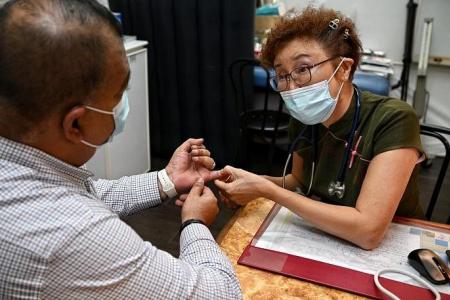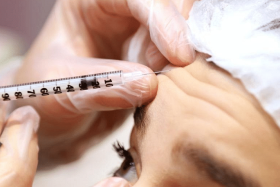Healthcare clusters working to support GPs in providing preventive care under Healthier SG
Singapore's three healthcare clusters are working on strengthening the support structures around general practitioners (GPs) to help them deliver preventive care under the country's new one-resident-one-doctor plan known as Healthier SG.
Their comments come after the Ministry of Health (MOH) had submitted the White Paper on Healthier SG to Parliament on Sept 21. Healthier SG is a major transformation of the healthcare system to get people to take charge of their own health to keep diseases at bay. It is slated for launch in the second half of next year for those aged 60 and up, but first needs the buy-in from GPs.
The GP onboarding process to Healthier SG has not begun, but the work to facilitate it has started.
"The SingHealth Partners Primary Care Network (PCN) is currently recruiting GPs in the eastern region to join the PCN, which is a prerequisite for GPs to come on board Healthier SG," said Professor Lee Chien Earn, SingHealth's deputy group CEO of regional health system.
"We are also working with MOH and AIC (Agency for Integrated Care) to gather feedback from GPs on the types of support they need."
GPs have earlier voiced concerns about the fees, workload, work involved in Healthier SG. Singapore has about 1,800 GP clinics, of which 670 have formed PCNs.
The clusters said they will strengthen their relationships with GPs and community partners such as social service agencies and schools as well as work closely with government agencies, such as the Health Promotion Board and Sport Singapore, in order to connect residents to a whole host of activities and interest groups.
SingHealth will set up integrated community care teams to deliver care in the east and anchor primary care in the community, said Prof Lee.
Called the SingHealth Healthier SG Teams, they will comprise care providers in a particular geographical area, such as the primary care providers, community nurses, well-being coordinators and social care partners, he said.
These teams will provide preventive care to the well population, as well as care coordination and chronic disease management to those who are at risk or have chronic conditions.
Under Healthier SG, MOH will give the three healthcare clusters an annual budget based on the total number of residents under their care.
At the National Healthcare Group (NHG), which takes care of the residents in the central-north region, deputy group CEO Eugene Fidelis Soh said it will develop with its GP partners relevant resources, shared care protocols and care pathways for enrolled patients, and have its IT systems enhanced and linked progressively.
"The family doctor is key to the implementation of Healthier SG," said Professor Soh.
In the long run, when residents feel confident about owning their heath, they can also then, as a community, care for their families, neighbours and society.
This "'gotong-royong spirit' will uplift our physical, psychological, social and spiritual well-being, collectively," he said.
Healthier SG builds on years of work that Singapore has put in to construct a healthcare system to help keep the population healthy and away from hospital care as much as possible
Mr Chua Song Khim, deputy chief executive of National University Health System (NUHS), said it has been working, for instance, with community partners to improve the health literacy of residents, encourage them to go for relevant health screenings and vaccinations, and guide them towards better management of health issues through GPs and National University Polyclinics,
He said NUHS has launched the My Health Map, a personalised preventive health plan for individuals, among other efforts. There is much to be done and NUHS will work on reaching out to more residents in the west, especially those who have not had the opportunity to seek medical care, he said.
"If it is still the single GP seeing patients in the clinic and in between sending WhatsApp messages to other patients to urge them to exercise to eat more healthily… Well, then it is a fool's errand and we are doomed to fail," said Associate Professor Jeremy Lim, director of the Leadership Institute for Global Health Transformation at National University of Singapore's Saw Swee Hock School of Public Health.
"But if the doctor is supported by a care team, a lot of technology and community partners, then it is not one person looking after thousands of people, but a properly structured and trained team."
Get The New Paper on your phone with the free TNP app. Download from the Apple App Store or Google Play Store now


